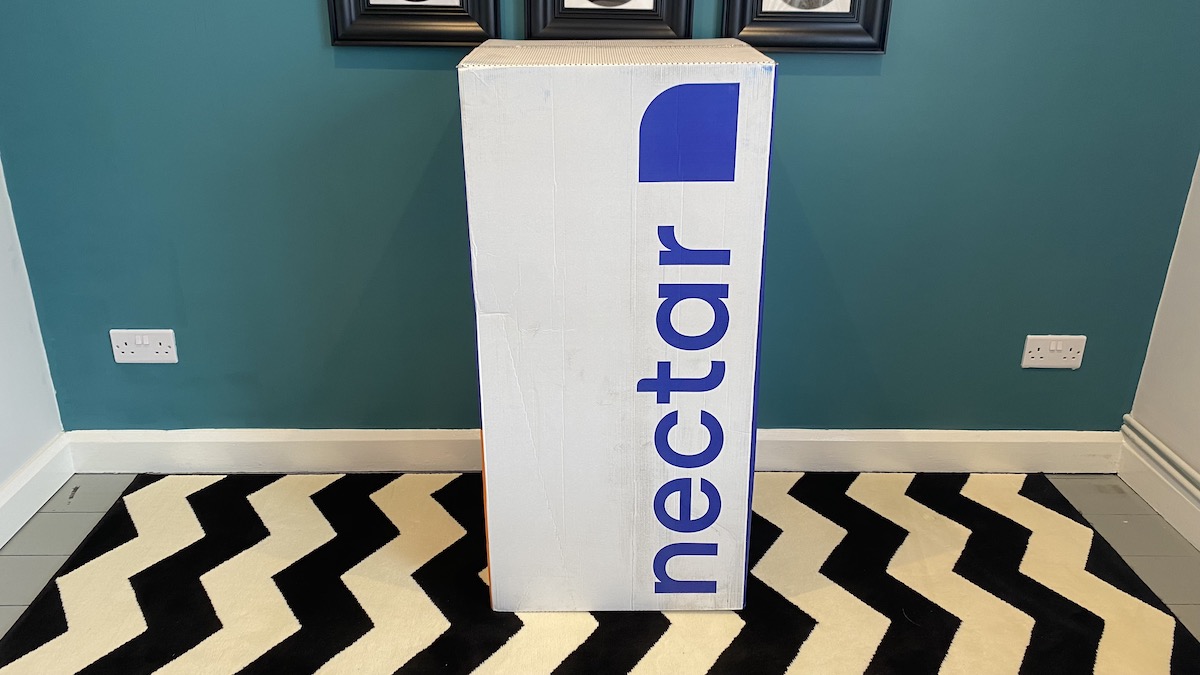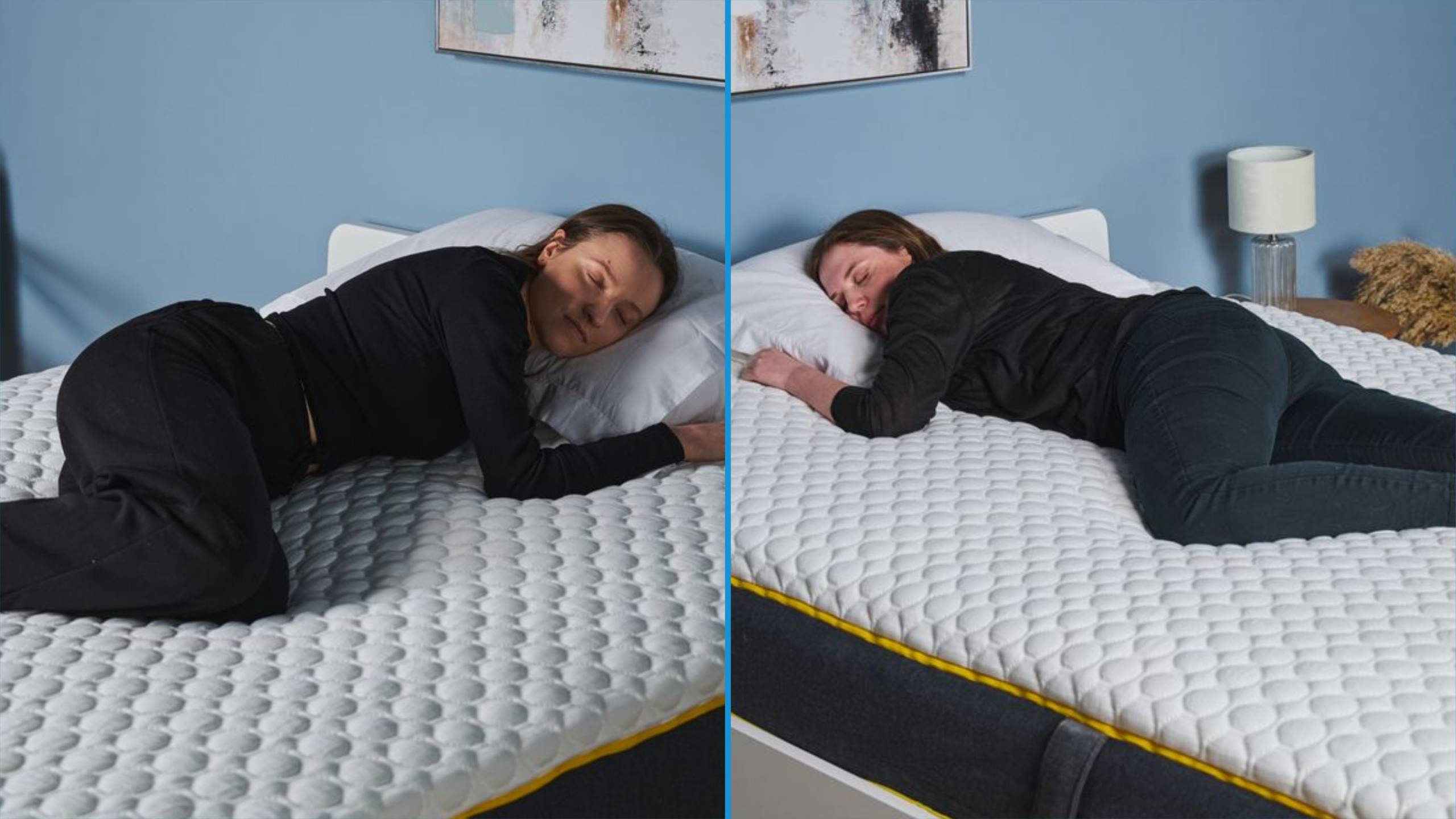I'm a mattress tester — 3 red flags to avoid when buying a bed in Labor Day sales
Don't lose sleep because of mattress buyer's remorse

As a mattress tester and deal hunter, I'm a firm believer in the phrase, "If it seems too good to be true, it probably is." Major sale events may lure you in with the promise of major savings, but if you're not savvy about your mattress purchase, you'll wind up paying for it in other ways later.
My goal is to help you save money and avoid heartbreak on your quest to find this year's best mattress for your body, sleep needs and budget. Here are the three red flags to watch out for when buying a new mattress in today's Labor Day mattress sales, and what to look for instead...
Today's top deals on popular mattresses
- Saatva mattresses: save $400 on every mattress
- DreamCloud mattress: up to 50% off
- Nectar mattresses: up to 40% off
- Helix mattresses: 27% off + free bedding
- Casper mattress: 35% off all mattresses
- Emma mattresses: up to 55% off
- Tempur-Pedic: 30% off cooling beds
- Brooklyn Bedding mattresses: 30% off sitewide
- Purple mattress: save up to $500
1. No sleep trial (or a limited return policy)
Buying a mattress online is daunting since you won’t know how it feels until you’ve slept on it. Even then, it can take at least three weeks for your body to adjust to a new sleep surface.
Fortunately, at-home trials are standard across the sleep industry. The average is 100 nights, but brands like Saatva, Nectar, and Avocado go even further and provide a full year, allowing you to assess your mattress across all seasons and any personal changes you may experience.

Return policies vary, as well. Until recently, Amazon only accepted mattress returns within 100 days if the box was unopened, although you’d still get a refund. They’ve since updated the policy to include opened mattresses, but even then, not all addresses may be eligible for collection, leaving you responsible for disposing it. If you need help on that front, here's how to get rid of a mattress.
There is one caveat. Final sale items and very cheap mattresses may not include a trial period or be eligible for returns at all. If you’re getting a stellar deal on a mattress you already know and love, or need a temporary bed that won’t see much use, it could be worth the risk if it's backed by a decent warranty. Otherwise, I strongly recommend not buying a mattress without a proper trial.
2. Vague warranty terms
A warranty is a brand's promise that your mattress will be replaced, repaired, or refunded in case of a manufacturing issue. Most retailers are transparent about what warranties cover and for how long.
Get instant access to breaking news, the hottest reviews, great deals and helpful tips.
This information is typically provided with the mattress, but you should also be able to search for it online. If you're not able to find the warranty terms or have questions, reaching out to the brand directly can be a good litmus test of their quality of customer service.
It's important to know whether the mattress warranty is prorated, too, meaning you'll have to cover some of the costs for replacements or repairs. While a prorated warranty isn't a red flag, it can turn into one if this information isn't provided upfront. Any mattress warranty length can be prorated but it's particularly common among long-term and lifetime warranties.
3. Hugely positive (or negative) reviews
I’m weary of any mattress that’s been on the market for a couple of years yet only has 5-star reviews on its product page. No mattress is 100% perfect for every person, so I'd fully expect to see a bunch of three-star mediocre reviews in the mix.

Customer reviews can offer valuable insights, especially from those who share your preferences. However, it’s useful to have a keen eye for genuine feedback, which is admittedly getting harder to do these days.
Personally, I find 2-, 3-, and 4-star reviews to be the most informative. That's not to say every 5-star or 1-star review is unreliable, but flooding a product with extreme ratings — either positive or negative — can be a tactic to either build up or tear down a brand.
So what do I look for in a customer review? I don’t expect a short essay, but I appreciate it when someone describes how a mattress addressed their sleep issues for better or worse. I also like when reviewers provide context, such as their sleep position, bed size, and whether they sleep alone or with a partner.
I also recommend reading professional reviews from journalists you trust. At Tom’s Guide, our expert sleep team is dedicated to providing honest accounts based on real-world experiences and objective tests to help discerning shoppers like you make the best decision for your sleep. Read our mattress methodology to learn more about our testing process.

Based in Philadelphia, writer and editor Alison Barretta has been sharing buying advice and retail news for over 15 years. Since 2020 she's been helping Tom's Guide expand its robust library of sleep content by researching the latest trends, speaking with renowned experts, and going behind the scenes at Saatva, Casper, Sleep Number, Tempur-Pedic, and 3Z Brands. Alison has reviewed everything from budget mattresses to immersive luxury smart beds that automatically adjust to your every move. When she isn't reviewing mattresses or searching for great deals to save you money, Alison can be found practicing yoga and martial arts, experimenting with recipes, getting too invested in the Philadelphia Flyers, and snoozing with her cat / assistant mattress tester Alex.
